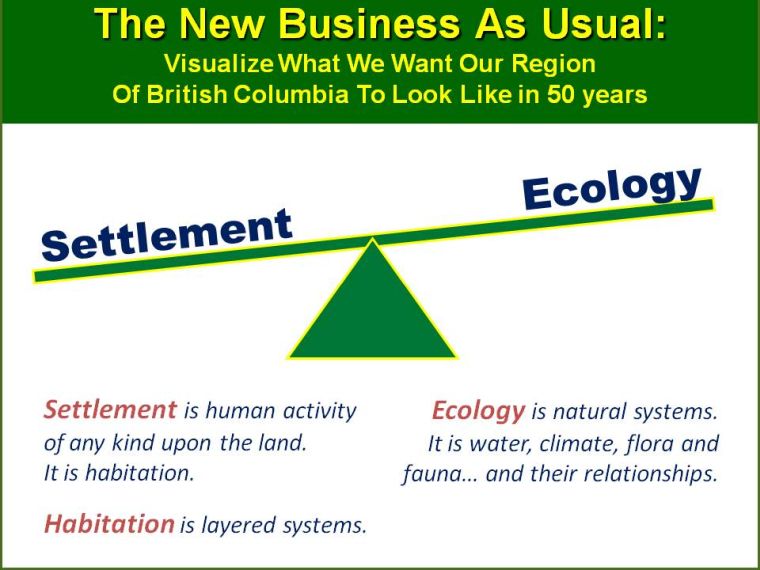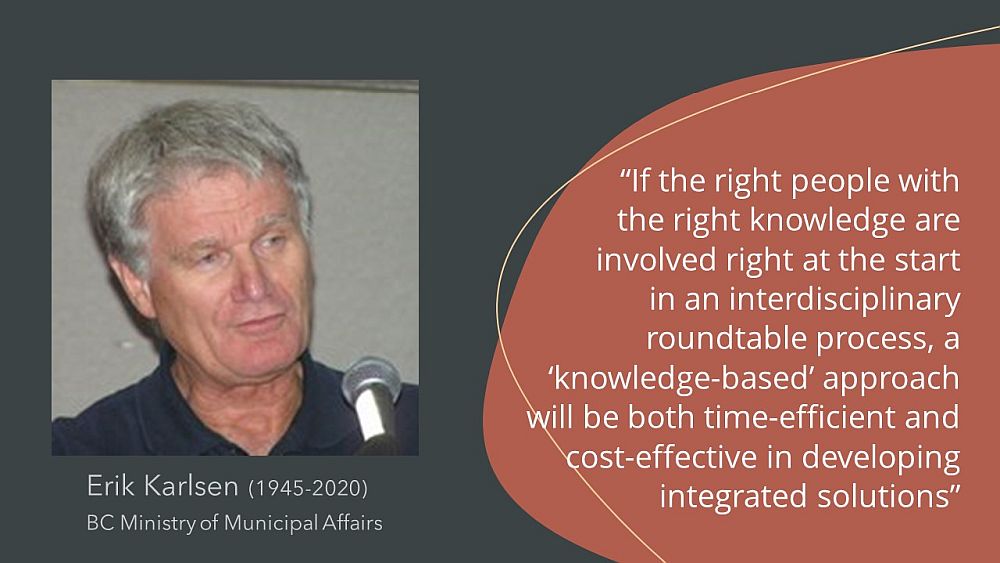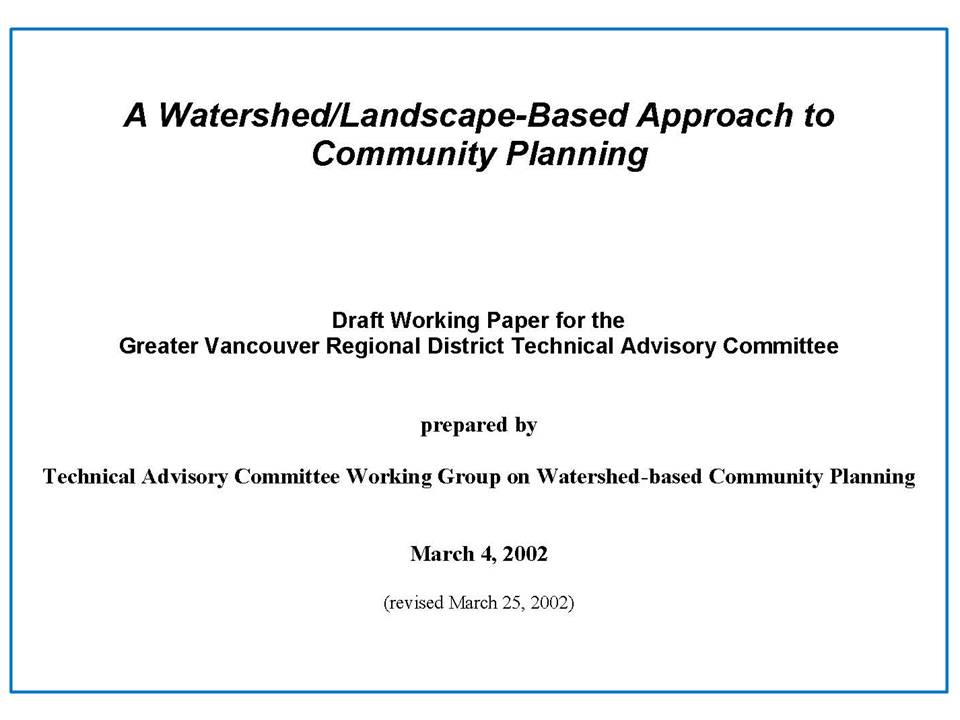WATER SUSTAINABILITY ACTION PLAN: Metro Vancouver guidance document for a “Watershed / Landscape-based Approach to Community Planning” is the genesis for an actionable vision for water-centric planning in British Columbia

Settlement in balance with ecology way-of-thinking subsequently incorporated in “Living Water Smart”
Published in March 2002 by the Greater Vancouver Regional District (GVRD), the Watershed / Landscape-Based Approach to Community Planning was incorporated as an element of the Water Sustainability Action Plan for British Columbia; and subsequently morphed into what is now known as “water-centric planning“. In its simplest expression this means:
- Protection of people and property from natural hazards.
- Protection and conservation of self-sustaining ecosystems.
- Continuation and growth of resource-based economic activity.
- Provision of an affordable, sustainable and maintainable infrastructure.
The underpinning premise is that resource, land use and community design decisions will be made with an eye towards their potential impact on the watershed. How does a community weigh the benefits and liabilities of change driven by demand for land use?
What will determine long-term wellbeing for a community or region? In a nutshell, ‘wellbeing’ is about sustainability of what communities allow or prevent happening on the land. Wellbeing is about balancing settlement activity and ecology.

About the Genesis of Water-Centric Planning
Erik Karlsen, then the Director of Special Projects with the Ministry of Community Affairs, was a principal author of the GVRD document. He collaborated with an interdisciplinary working group that reported to the Technical Advisory Committee, comprising the Planning Directors of the Greater Vancouver municipalities.
“An important message is that planning and implementation involves cooperation among all orders of government as well as the non-government and private sectors,” stated Erik Karlsen, a principal author of the Waterhsed-Landscape-based Approach. “Achieving desired results at the site and activity levels also requires support from individuals, which in turn calls for engaging people both in the development of strategies and the use of a range of voluntary, incentive, public investment and regulatory tools.”
To Learn More:
To read the complete story about a watershed / landscape-based approach, click on the genesis of water-centric planning in British Columbia.

About Erik Karlsen
Erik Karlsen is a professional land use planner with almost 40 years experience in advisory through management level positions in federal, provincial, regional and local levels of government and private sector.
Mr. Karlsen worked for the BC Provincial Government for 29 years leaving in April 2002. Subsequently, he was a member of advisory committees, taught at Royal Roads University in the Masters of Environment and Management Program, and was Chair of the Agricultural Land Commission.
Erik Karlsen has been awarded several awards of distinction for his contribution to sustainable development planning and management in BC and Canada.


